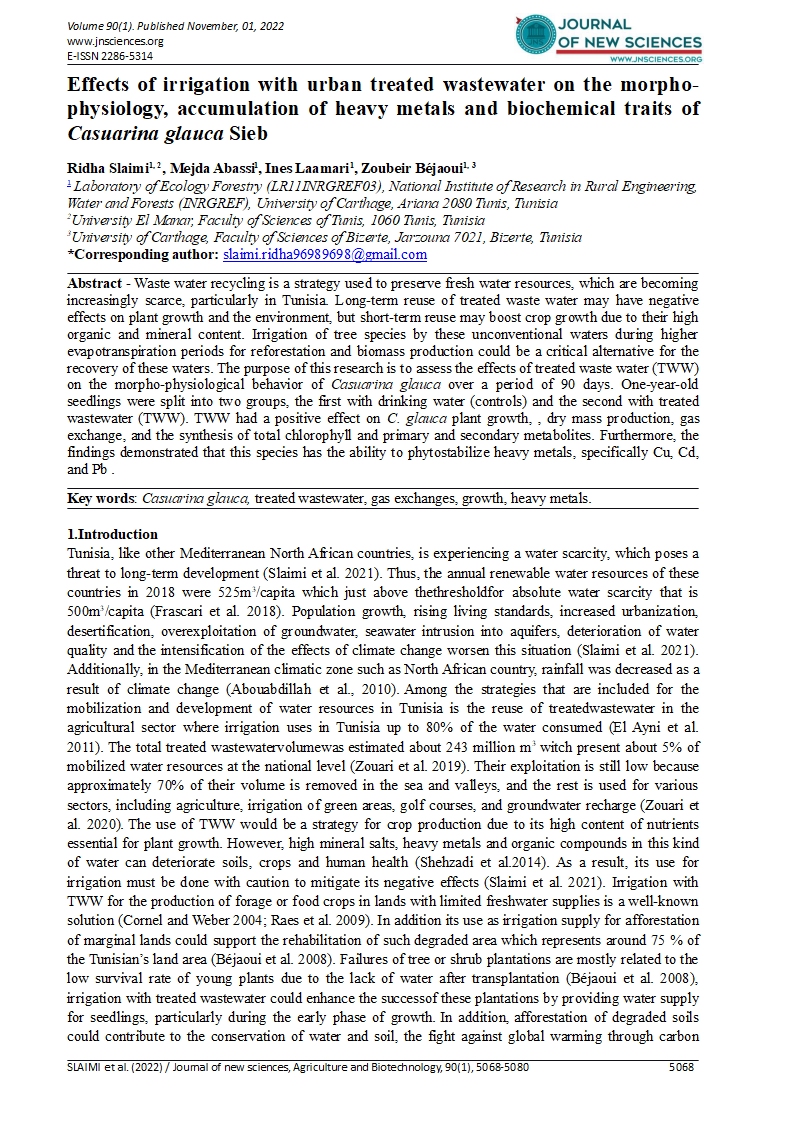

- Category: Volume 90
- Hits: 1003
Effects of irrigation with urban treated wastewater on the morpho-physiology, accumulation of heavy metals and biochemical traits of Casuarina glauca Sieb
Ridha Slaimi1, 2
Mejda Abassi1
Ines Laamari1
Zoubeir Béjaoui1, 3
1 Laboratory of Ecology Forestry (LR11INRGREF03), National Institute of Research in Rural Engineering, Water and Forests (INRGREF), University of Carthage, Ariana 2080 Tunis, Tunisia
2University El Manar, Faculty of Sciences of Tunis, 1060 Tunis, Tunisia
3University of Carthage, Faculty of Sciences of Bizerte, Jarzouna 7021, Bizerte, Tunisia
DOI: https://doi.org/10.55416/sunb.jns01.2211.09001
Abstract - Waste water recycling is a strategy used to preserve fresh water resources, which are becoming increasingly scarce, particularly in Tunisia. Long-term reuse of treated waste water may have negative effects on plant growth and the environment, but short-term reuse may boost crop growth due to their high organic and mineral content. Irrigation of tree species by these unconventional waters during higher evapotranspiration periods for reforestation and biomass production could be a critical alternative for the recovery of these waters. The purpose of this research is to assess the effects of treated waste water (TWW) on the morpho-physiological behavior of Casuarina glauca over a period of 90 days. One-year-old seedlings were split into two groups, the first with drinking water (controls) and the second with treated wastewater (TWW). TWW had a positive effect on C. glauca plant growth, , dry mass production, gas exchange, and the synthesis of total chlorophyll and primary and secondary metabolites. Furthermore, the findings demonstrated that this species has the ability to phytostabilize heavy metals, specifically Cu, Cd, and Pb .
Key words: Casuarina glauca, treated wastewater, gas exchanges, growth, heavy metals

